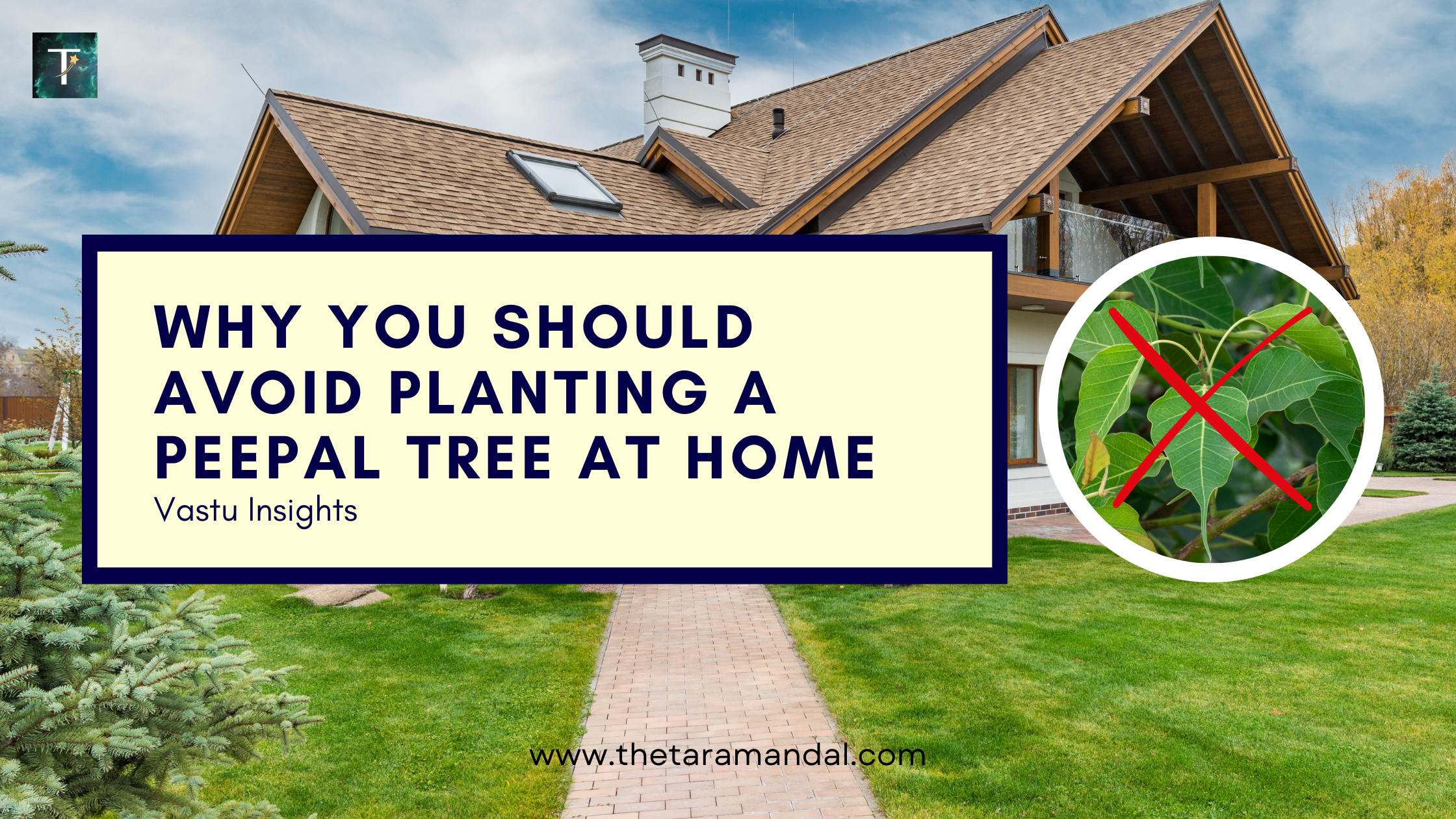on 1 year ago
Why You Should Avoid Planting a Peepal Tree at Home
Why You Should Avoid Planting a Peepal Tree at Home: Vastu Insights
The Peepal tree, also known as the sacred fig or Ficus religiosa, holds a special place in Indian culture and spirituality. Revered for its religious significance, it is often found in temples and sacred places. However, according to Vastu Shastra, the ancient Indian science of architecture and design, planting a Peepal tree at home is generally discouraged. In this blog, we will explore the reasons behind this belief and what it means for your living space.
1. Cultural Significance of the Peepal Tree
The Peepal tree is considered sacred in Hinduism and Buddhism. It is believed to be a dwelling place for various deities and spirits. While it is worshipped in many contexts, its presence within a residential area can lead to complications that may affect the household's harmony.
2. Negative Effects on Family Life
Financial Troubles
According to Vastu principles, planting a Peepal tree near or within your home can lead to financial difficulties. It is believed that the tree absorbs positive energy, which can hinder prosperity and success for the family living nearby.
Health Issues
The presence of a Peepal tree is thought to create an environment that may lead to health problems for family members. This belief stems from the idea that the tree's energy can disrupt the well-being of those who reside close to it.
3. Spiritual Implications
Shadow of the Tree
The shadow cast by a Peepal tree is considered inauspicious. It is believed that if the shadow falls on a house, it can obstruct progress and invite negativity into the home. This can affect the overall growth and happiness of the family.
Loneliness and Solitude
Having a Peepal tree at home may create an atmosphere of solitude. It is thought that this tree can lead to feelings of isolation among family members, affecting their relationships and social interactions.
4. Practical Considerations
Maintenance Challenges
Peepal trees can grow quite large and require significant maintenance. Their extensive root systems can damage nearby structures or plumbing, leading to costly repairs.
Space Constraints
In urban settings, space is often limited. Planting a Peepal tree may take up valuable space that could be used for more beneficial plants or gardens that enhance positive energy.
5. What to Do If You Already Have One
If you already have a Peepal tree planted near your home, it is advisable to consider relocating it. The best time for such an action is on a Saturday, which is considered auspicious for uprooting plants according to Vastu Shastra. Ensure that you do this carefully to avoid damaging its roots.
If relocation isn’t possible, you can choose to worship the tree instead. This involves performing rituals or offering prayers to mitigate any negative effects while respecting its spiritual significance.
Conclusion
While the Peepal tree is revered for its spiritual importance, planting it at home may not align with Vastu principles due to potential negative implications for family life and well-being. Understanding these insights can help you make informed decisions about your living space.
If you're interested in personalized advice on how Vastu Shastra can enhance your home environment or if you have specific concerns about your living space, consider consulting an expert astrologer at Taramandal for tailored guidance!

